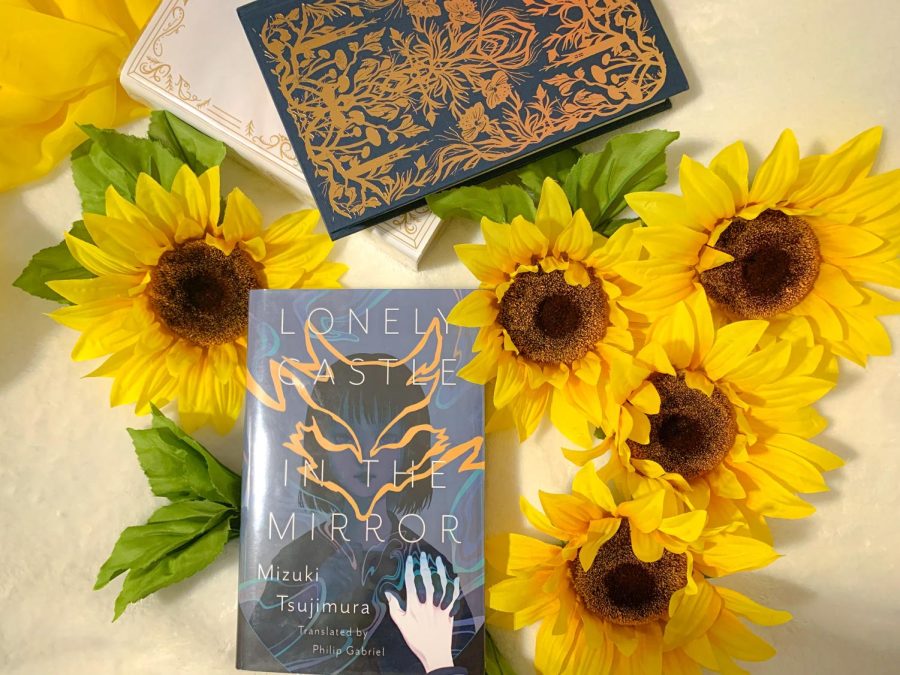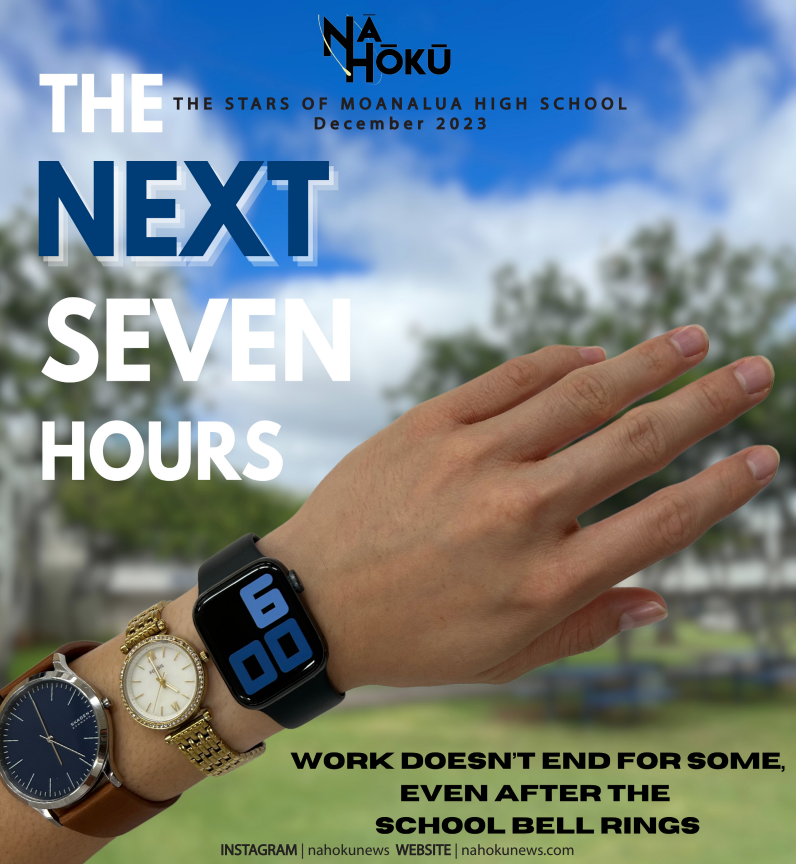Looking into a mirror of our world
April 10, 2023
Lonely Castle in the Mirror, by Mizuki Tsujimura, centers around seven students of varying ages that are given access to a magic castle within their mirrors. Kokoro, the main protagonist, after being brutally bullied developed severe social anxiety and cannot attend school without suffering from anxiety-induced sickness. Secluding herself within her house each day, Kokoro anxiously avoids the people passing by, fearing that they will ridicule her or even start the bullying anew.
Kokoro is joined by six other students within the castle in their mirrors, Rion, Aki, Ureshino, Fuka, Subaru, and Masamune. Nearly all of them are shirking school for one reason or another, and the master of the castle, the “Wolf Queen” gives them a mission. They are tasked with finding a key within the castle, and once found can grant the finder a single wish. Magic and mystery run afoul as the seven acquaint themselves with one another and investigate the mystery behind the castle.
Seven storylines are woven together and piece together the story, slowly revealing the truth behind the story. Tsujimura writes of children that suffer from bullying and ostracization in school, highlighting the issues that face students of all ages both in the past and present. Her story unfolds itself within the connections between friends and enemies alike. Painting children and teenagers in a realistic light, despite their unrealistic environments. The writing conveys the truths behind the words expertly, allowing readers to connect to the characters and understand their perspectives.
Tsujimura’s writing is the perfect blend of fantasy and reality that allows readers to immerse themselves in the halls of the magical castle within the mirror while relating to and empathizing with the characters within for their flaws and hardships that mimic our own. Tsujimura writes characters that appeal to the widest audience, with ideas, emotions, and pains that move even the most jaded of people. Translated works typically have a clunky tone, resulting from the translation process but that tone rarely makes appearances within this work, it keeps the suspension of disbelief intact throughout the work.
The world Tsujimura has created is so like our own that it becomes entirely plausible for the events of the book to occur. From the bullying that is so commonly seen in classrooms around the world, to the relationships between parents and children that are portrayed as diverse as they are in life.
Bullying plays a major role in the lives of Kokoro and her friends, most of them being bullied in some way or another. Tsujimura builds on bullying as a theme to highlight the issue that is so prevalent in Japanese schools, and around the world. Her writing illuminates a powerful and poignant issue in a world that is both ours and not. Calling forth the pain of the bullied, and the gravity of its effects on children.














